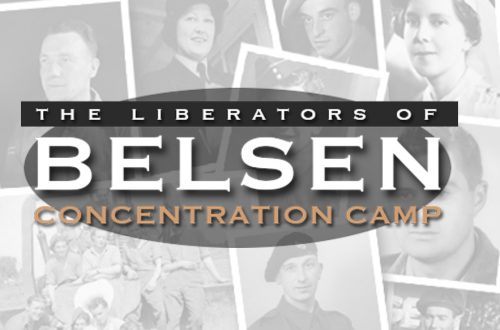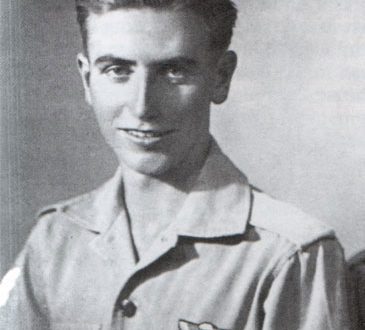Acton Henry Gordon Gibbon (Spud)
Spud Gibbon was the son of a colonel in the royal army medical corp who was from Sleedagh near Murrintown in Wexford – an ancestor was the historian Edward Gibbon, author of The Decline and Fall of the Roman Empire.

Spud was educated at Wellington College in England and had done six months at Queen’s University in Belfast when the second World War broke out and he joined up. As a 21-year-old, he was one of the first people to enter Belsen, a concentration camp run by the Nazis in which an estimated 50,000 people died, many of them from disease, during the war. The experience of witnessing what went on at Belsen marked Gibbon for the rest of his life.
***
Acton Henry Gordon Gibbon:ACTON HENRY Gordon Gibbon, who has died aged 84, was awarded the only George Medal for bravery during the Korean War. In 1951, Gibbon (known to everyone as Spud) was posted to a field regiment of the royal artillery in Korea. There he was captured when he was forward observation officer in support of the Royal Ulster Rifles and his post was overwhelmed by Chinese forces.
As a prisoner, he was taken to the notorious Major Pak’s Death House camp north of Pyongyang. There he helped an Australian and two American officers to escape while he remained behind.
The North Korean guards, determined to find out the route taken by the escapees, questioned him and when he refused to give information, suspended him by a rope that went over a branch of a tree and was tied to his wrists that were behind him. The guards tortured and beat him, but he would only say that he did not know the direction the absconding officers had taken and if he had, he would not have told them.
Eventually he passed out from the numerous beatings. When he revived, they threatened to shoot him and as he still would not tell them anything, they forced sharpened bamboo shoots under his fingernails until he fainted with the pain and was returned to the POW camp.
He spent 2½ years as a prisoner. What kept him sane, he said, was planning the improvements that he would make at Errington, the farm that his father had bought near Enniskillen, Co Fermanagh.
He was in India when partition was taking place and was in command of some of the trains carrying the refugees between India and Pakistan. They were frequently ambushed, with heavy casualties.
In 1954 he was adjutant to a territorial army artillery regiment in Bangor, Co Down, and married Rosamond Lowry from Northern Ireland. They lived for some time in Hong Kong where he commanded an amphibious observation troop.
Spud left the army when his father died in 1965, and took over the family farm at Errington. There, he was one of the first commercial mushroom growers in the country. When the business became too competitive, he gave it up and built a trout farm between the Ballinamallard river and a derelict mill race. After several years, this concern was sold successfully and he devoted himself to making a remarkable garden featuring a hanging garden and fountains in the valley in front of his house.
There was an extraordinary number of livestock at Errington, including peacocks, wallabies and wild geese, (which were not very wild because when he called they flew to him from the fields). Pet badgers had the run of the house until the visitors objected to having their ankles nipped, so they were persuaded to return to the wild. Spud could often be met driving his Shetland ponies in tandem along the roads or giving rides in his tiny chariot to disabled children.
He was a deputy lieutenant of Tyrone, a justice of the peace and president of the Fermanagh branch of the British Legion. The interest he took in people made him extremely popular. “The nicest man I ever knew,” was the valediction from a neighbour.
His wife, Rosamund, died in 1994 and he is survived by his two daughters.
Acton Henry Gordon “Spud” Gibbon GM: born June 7th, 1924; died October 4th, 2008
9,573 total views



